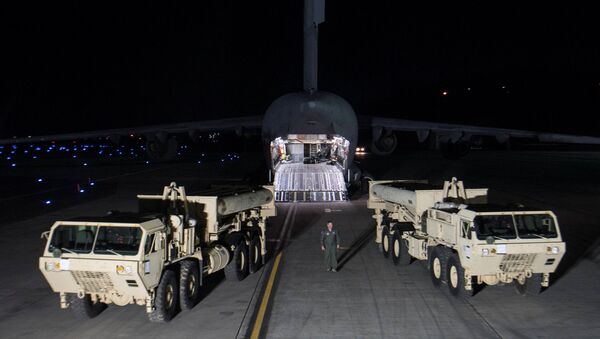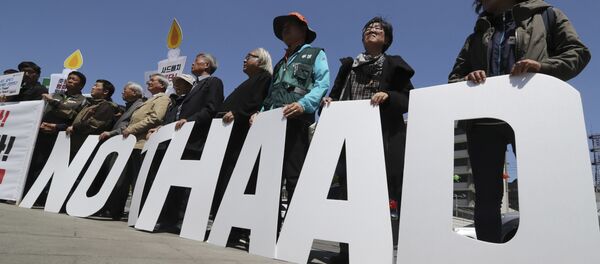TOKYO (Sputnik) — Earlier in the day, US President Donald Trump said he wanted South Korea to pay for the $1-billion defense system, stationed in the country to shield it from a possible missile attack by North Korea.
"A notification from the part of the United States [government] regarding this issue has not been obtained," an official from the South Korean Foreign Ministry said, as quoted by the Yonhap news agency.
The THAAD agreement was reached by Seoul and Washington in July 2016. The move came amid growing tensions spurred by North Korea's recurring ballistic and nuclear missile tests.
The THAAD system has a range of some 200 kilometers (125 miles) and is designed to intercept short, medium and intermediate ballistic missiles at the terminal incoming stage. The move to deploy it in South Korea has been criticized by neighboring China and Russia as inappropriate, possibly disproportionate, and affecting other countries' interests.




